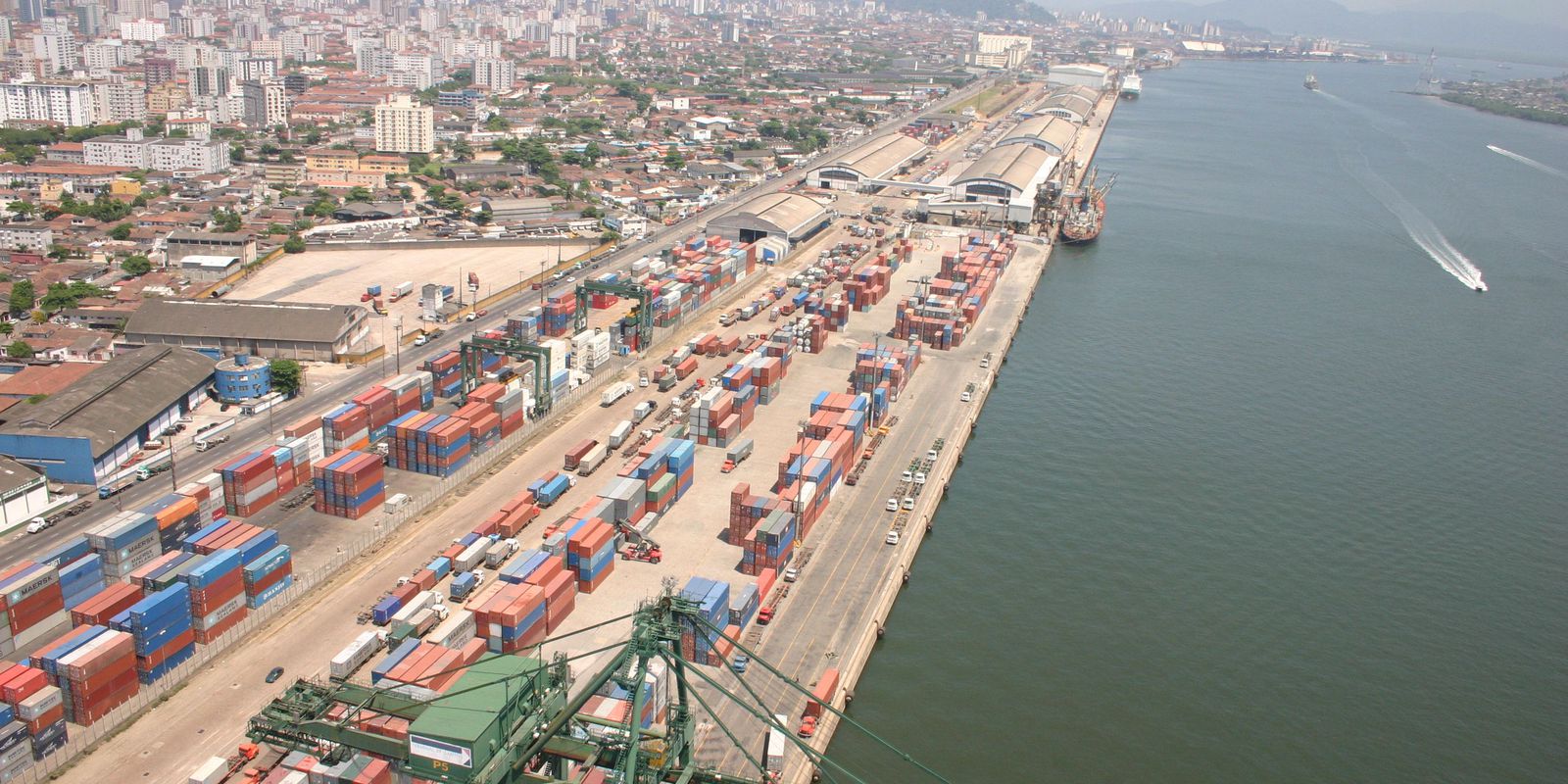Cargo handling in the port sector fell by 3.3% in the first half of 2022 compared to the same period last year, the National Waterway Transport Agency (Antaq) reported today (15). According to the agency, the organized ports, authorized and leased terminals handled 581.3 million tons in the period.
The information is contained in Antaq’s Waterway Statistical panel. The panel also highlights that, compared to the first half of last year, there was a reduction in the movement of the main cargo profiles: solid bulk, liquid and containers.
In solid bulk, the drop was 4.4%, with handling of 335.9 million tons. This type of cargo represents 58% of the total cargo handled.
In liquid bulk, the fall was slightly higher, 4.5%, with 148.1 million tons. Liquid bulk handles 25% of cargo in the country.
In containers, the reduction was 4.4%, with a movement of 62.7 million tons. In general, the movement is 11% of the loads in the country.
Reduction in exports
According to Antaq, the drop was driven by the reduction in exports of the main Brazilian commodities: iron ore, soy and oil.
The positive highlight was for cargo in general, which grew by 18.6%, with 34.7 million tons handled. Cargo in general handles 6% of the cargo transported in the country. Pulp exports led to growth.
According to the general director of Antaq, Eduardo Nery, the reduction in movement can be explained by problems in the economy of China, Brazil’s largest trading partner.
“We understand that the decrease is mainly due to the problems that occurred in China, with lockdowns and closing of industries and ports. This impacted the movement of solid mineral and vegetable bulk. So are our containers,” said Nery, who added that he expected total handling in 2022 to be close to last year.
Antaq’s projection is that cargo handling in the second half will be at 631 million tons, a growth of 2.9% compared to the same period last year. With this, the forecast is that the total movement will be at 1.212 billion tons, a decrease of 0.2% compared to the previous year.









